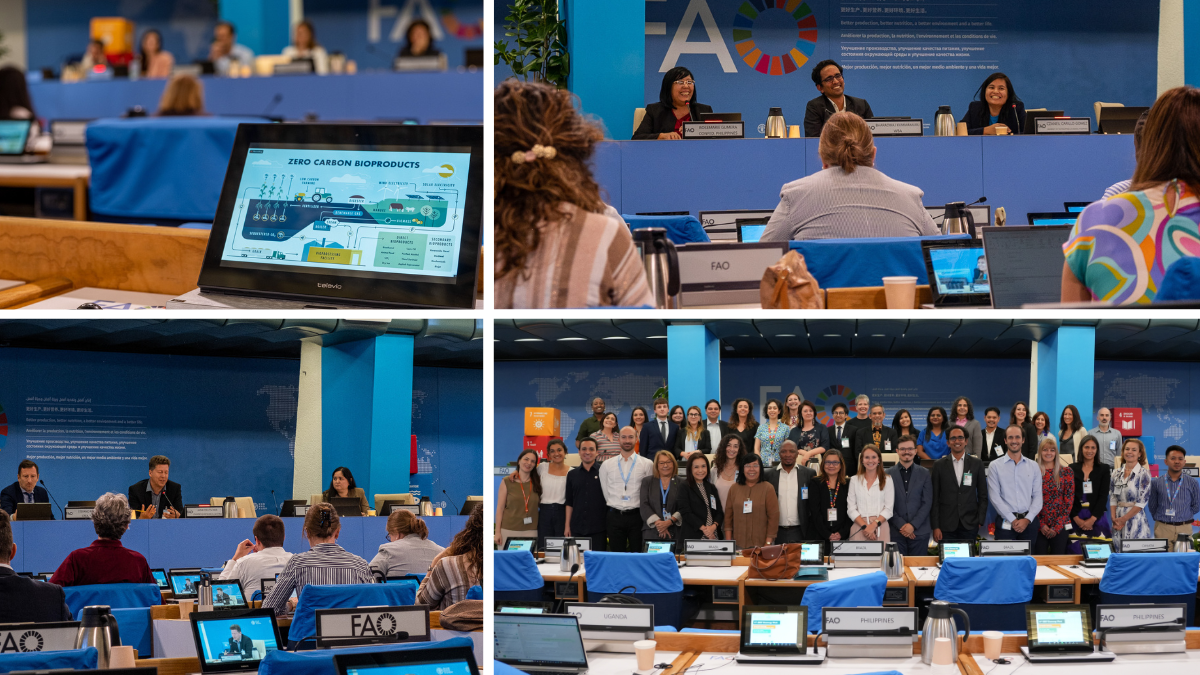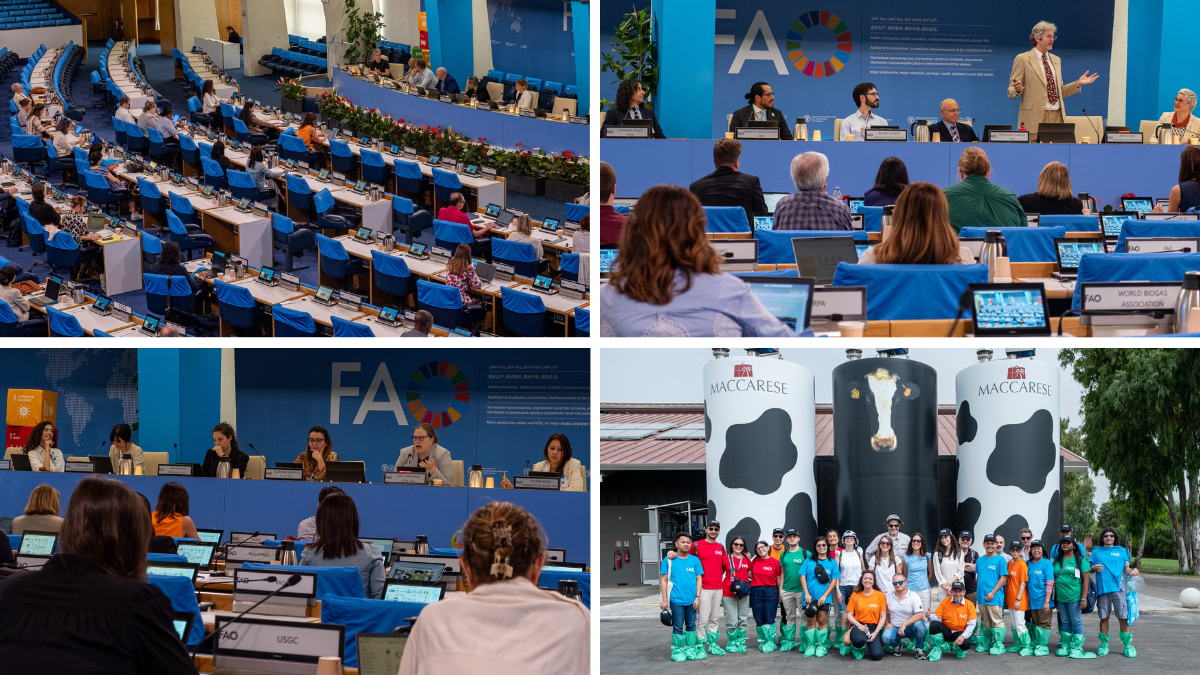Advancing sustainable bioenergy: Key takeaways from the 11th GBEP Bioenergy Week

Rome, Italy – Over 200 stakeholders, including international experts, policymakers, industry leaders, researchers and students, gathered at the Food and Agriculture Organization of the United Nations (FAO) headquarters on 17-21 June 2024 for the 11th Bioenergy Week organized by the Global Bioenergy Partnership (GBEP).
Throughout the five-day event, participants delved into various aspects of bioenergy, exchanging knowledge and experiences and reinforcing the importance of interdisciplinary collaboration in advancing the bioenergy sector. Key discussions revolved around ensuring the sustainability of bioenergy and harnessing it to address global challenges such as climate change, energy access and food security.
“The 11th Bioenergy Week reaffirmed GBEP as a unique forum for addressing the challenges of bioenergy as a tool for climate change mitigation and sustainable development. Like previous Bioenergy Weeks, we expect this event to strengthen partnerships and foster new opportunities for bilateral and multilateral collaboration,” said Tiziana Pirelli, GBEP Coordinator.
Bioenergy’s role in mitigating climate change and achieving net-zero emissions was a major focus. As the largest and fastest-growing renewable energy source, bioenergy drives the global energy transition and contributes significantly to decarbonization through various mechanisms and applications.

Successful case studies from around the world were presented such as the sugarcane cultivation and ethanol production in Brazil; palm oil-based Bioavtur production, and use of waste, sawdust, woodchips and palm kernel shells as co-firing fuel in Indonesia; integration of bamboo with food and cash crops and livestock to enhance sustainability of charcoal production and conservation of land in Ghana; and utilization of biochar and digestate to improve soil fertility.
Experts also discussed the expansion of biofuels in sectors like transport, aviation and industry, and underscored the need for standardized sustainability measures, supportive policies and multistakeholder partnerships to accelerate growth.
Special focus was also put on bioenergy with carbon capture and storage (BECCS). While it has a huge potential to advance the bioenergy sector, experts pointed out that its feasibility depends on local conditions, particularly the maturity of the biogas and biofuel industry, availability of biomass, and sufficiency of CO2 storage potential. It also requires strong policy support, significant investments in infrastructure and standardized accounting mechanism for the CO2 captured and stored.
Another critical topic was achieving universal clean cooking access, particularly in sub-Saharan Africa, to improve health and nutrition, empower women and reduce environmental impact. Various speakers emphasized the need for safety standards and regulations, increased awareness, and investments to scale up bioenergy-based clean cooking technologies.

Throughout the week, participants concurred that there is no one-size-fits-all approach to ensuring the sustainability of bioenergy; rather, strategies must be tailored to local contexts and take into account the unique environmental and socio-economic conditions. Experts also stressed the need for continued innovation and new technologies, as well as robust data, tools and models for designing, monitoring, and evaluating bioenergy policies to ensure their effectiveness and sustainability.
Another highlight of this year's Bioenergy Week was the first Bioenergy Youth Day, which saw more than 90 students participating in educational, interactive activities and training to ignite interest and passion for the field in the next generation.
Czaneil Gomez, a researcher from the Philippines, was also awarded the 2024 GBEP Youth Award for her study on the use of rice straw for biogas, which could potentially reduce greenhouse gas emissions by 24 to 38 percent compared with conventional rice production, whilst also providing local employment opportunities for farming communities and creating added value in the rice value chain.
The 11th GBEP Bioenergy Week concluded with a strong call for continued cooperation, good governance to mitigate risks associated with bioenergy and collective commitment towards a just and inclusive energy transition. This was exemplified by the launch of the Joint Statement on Sustainable bioenergy for climate and development goals, endorsed by nine international agencies working on energy.

